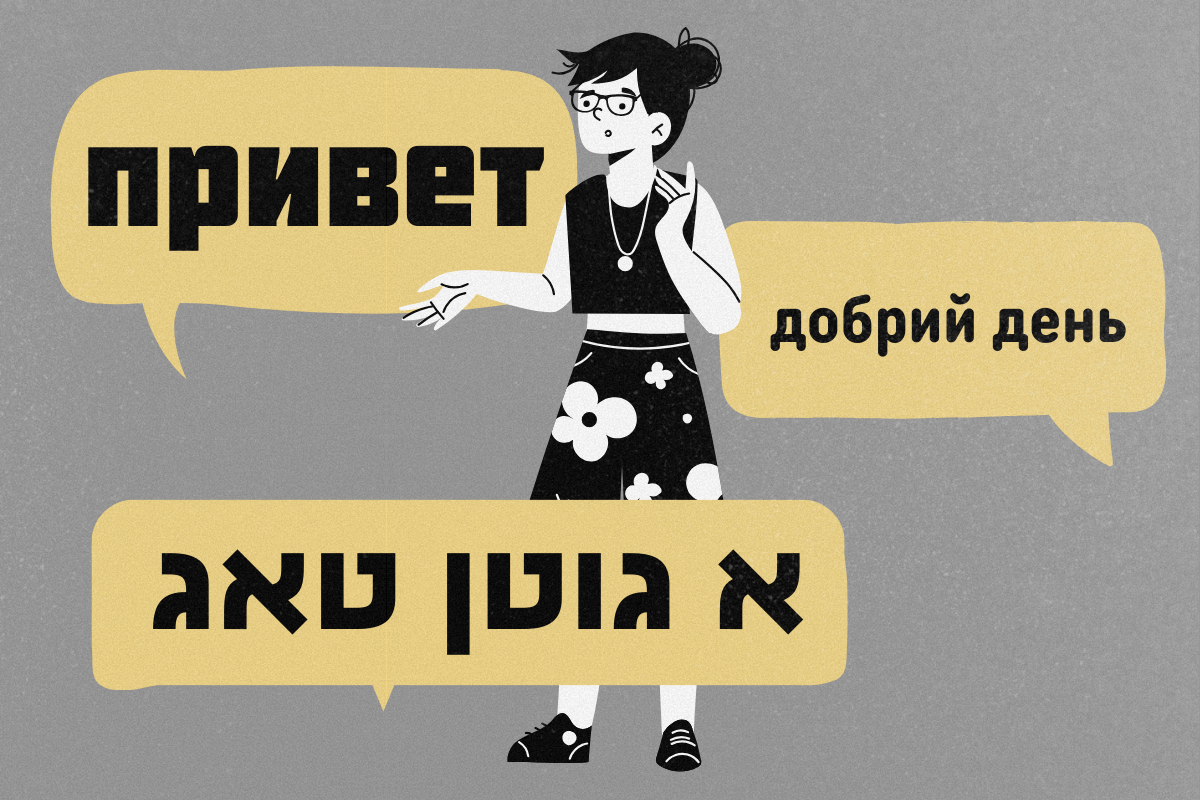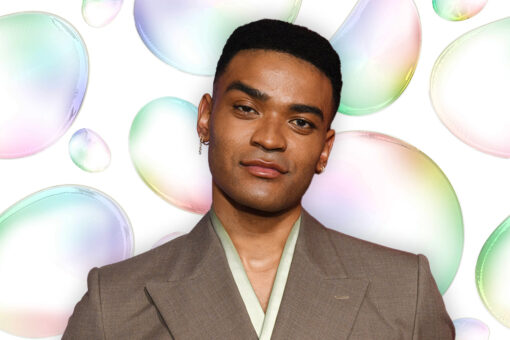As a Jewish person who was born and raised in America, descended from Russian speaking Jews who were born and raised in Ukraine, I’m sometimes not sure what language I can claim as my own.
Do I claim my mother’s first language, Russian, as my mother tongue, even though linguistic imperialism made it so that Russian was the lingua franca of most former Post-Soviet countries like Ukraine, meaning I never learned Ukrainian? Do I seek out to learn Ukrainian, even though the country itself has had its own complicated history of antisemitism (though honestly what country hasn’t), my family living for years on that land, yet often never considered true citizens?
Or do I claim Yiddish, my grandmother’s beloved language that I barely know how to speak beyond a small handful of pop culture references?
For centuries Jewish people have often been referred to as the “People of the Book.” Though in many instances the term refers to the sacred connection between the Jews and the Torah, there is also the intrinsic intimate connection between Jews and books and words. Why else would we kiss our books, fast when we accidently mistreat them, pour honey on the page to make the learning all the more sweeter?
As humans, our knowledge of the world is conceived through language. Language, whether spoken orally or signed, allows us to perceive the world, to know what to call the color of the sky as it changes from sunrise to sunset, to express our feelings of pain and joy, to communicate with the people we hate and love. Language as a whole is one of the most practical and poetic tools we possess to survive the world, and enjoy it in the process.
Within every language, there are unique cultural trademarks and social nuances that provide each tongue almost a unique personality. What would Sholem Aleichem’s literature be without the original influence of Yiddish, the language in which he wrote “Tevye the Dairyman and The Railroad Stories” which later become the basis for the iconic musical “Fiddler on the Roof,” a language known for its vicious humor as well as its tenderness? Look no further than any list of Yiddish proverbs and insults for the inventiveness found within this language.
It’s no wonder that multilinguals often feel they become a different version of themselves, if not a different person entirely, as they switch from language to language, sometimes with the painful necessity of assimilation, and sometimes with the joy of reinvention.
Yet as someone who was raised in a home where all my grandparents spoke to me in one language, in the domestic sphere of Russian, while the entire world outside our home spoke English, what language can I claim as my first?
In his book “Monolingualism of the Other, Or, The Prosthesis of Origin,” deconstructionist philosopher Jacques Derrida said: “I only have one language, yet it is not mine.” Upon first introduction to this quote I was blank to its meaning, until the author’s personal background was taken into account. Raised in French-colonized Algeria and born to a Sephardic Jewish family, Derrida had been exposed to the antisemitism that heavily influenced the country at the time, creating an internal discordance between himself and his only spoken language, French, in a country that had denied him his own French citizenship.
As the child of immigrants, when I speak in my parents’ Russian language, I am considered a “yankee” with a childish accent by native speakers. When I speak English, I am often asked “where are you from?” and “where are you really from?” from curious listeners who don’t believe I am American when they hear the accent in my voice, even though I have lived my entire life in this country.
So if Derrida had only one language that he felt was not his, and I have many yet belong to none, who am I?
As someone who’s gone through years of speech therapy, my brain, I’ve theorized, is stuck in the space between two worlds, two tongues. I’ve subconsciously decided to choose neither, resulting in the first five years of my life being mostly non-verbal.
Language has never seemed innate to me; it’s always been something I’ve had to earn. Maybe this is the case for many children of the diaspora, who can’t easily claim one land as their own, in that there is never an easy sense of linguistic inheritance.
Diaspora complicates the sense of linguistic “ownership.” Coming from a background in which one land was colonized by Russian, to being raised in another land that’s colonized by English (erasing and historically restricting many of the indigenous languages spoken on Turtle Island, the original name for the lands known as North America), my family falls in between the space of immigrant and settler.
Multilingual writer Jhumpa Lahiri once wrote, “When you live without your own language you feel weightless, and at the same time, overloaded.” Perhaps I will never know which language I belong to, and which belongs to me. Perhaps that unknowing is a language of its own.



